If you’re following along and reading in the One Year Bible, you’ve come upon the action-packed passage of Acts 12:1-23. This story recounts the beginning of persecution experienced in the early church.
This particular story involves Simon Peter (one of the 12 disciples.)
“About that time King Herod Agrippa began to persecute some believers in the church. He had the apostle James (John’s brother) killed with a sword. When Herod saw how much this pleased the Jewish leaders, he arrested Peter during the Passover celebration and imprisoned him, placing him under the guard of four squads of four soldiers each. Herod’s intention was to bring Peter out for public trial after the Passover. But…”
A few things first before we get to the all important “but.”
These first few verses tell us much about a leader who will do what he/she needs to do to keep their base happy and solidify their support. King Herod has James killed and when he witnesses with his own eyes how much the killing of James pleased his base, he decides to go back for more.
This verse also tells us that the gospel message is still meeting solid resistance from those in power. Be reminded, the gospel message is about justice, and equality. The gospel message is about freedom and liberation. That’s a message that highly disturbs those who have solidified their power and amassed their wealth on the backs of the masses. The gospel comforts the afflicted and afflicts the comfortable.
So—King Herod goes back for more. This time, he has Simon Peter arrested during the high holy days of Passover—and as a postlude spectacle to the Passover festival, while all the masses are in town to celebrate, King Herod intends to put Simon Peter on public display. (He’s going to stir up his base a little more)
Remember, Simon Peter is the one who had the vision (the holy disruption) that changed his worldview. In that vision Peter hears from God that we humans, no matter of our religious affiliation, have no right to call unclean what God has called clean. (Refresh your memory by reading Acts 10). Peter is now preaching the good news of the gospel through that lens and with fervor—he sees God’s kingdom coming and God’s Kingdom is an affront to the kingdoms of this world. So, Peter is the target. He is arrested and, if the King’s previous actions are any indication, Peter knows the trial will be rigged and he also will be put to death for the sake of the gospel.
Acts 12:5 continues; “But…
But while Peter was in prison, the church prayed very earnestly for him.
Two things to notice here. They prayed. Prayer is making petition to God. Prayer is being in relationship with God. Prayer is aligning our will with God’s will. But this passage provides a description of how they prayed: earnestly. The Greek word that gets translated as “earnestly” is ektenōs. The word “earnestly” doesn’t do it justice. In its full meaning, ektenos means to be full-stretched, it’s the verbal idea of being extended out as in to its necessary full potential, without slack, it means fervently or without undue let up.
They prayed without letting up.
Might we consider praying without letting up? Might we consider praying without slacking up? Might we consider praying until we see God’s power released in its full potential?
Back to the conjunction—“but.” Throughout scripture the word “but” appears. It joins two things together. This happened, but then this happened. The powers of the world did this, but then, the power of God did this. My friends, in any situation there is always the holy conjunction.
So, you’re asking, “What happened?”
Be reminded Peter was under guard. Not just one or two guards, but 16 guards were posted. He’s in prison. He’s in chains. He’s locked up. And he’s under heavy guard. Do you ever feel that way in life? I do.
So, what happened?
“The night before Peter was to be placed on trial, he was asleep, chained between two soldiers, with others standing guard at the prison gate. Suddenly (that’s another great biblical word), there was a bright light in the cell, and an angel of the Lord stood before Peter.
The angel tapped him on the side to awaken him… (sidenote—not sure how well I would sleep in the circumstances under which Peter found himself.) …and the angel said, “Quick! Get up!” (there’s that Greek word that means ARISE! Be resurrected) And the chains fell off his wrists. Then the angel told him, “get dressed and put on your sandals.” And he did. “Now put on your coat and follow me,” the angel ordered! So Peter left the cell….” (Acts 12:6-9)
There is a lot more to the story and you can read the rest for yourself. I highly recommend reading the entire book of Acts.
Peter gets a bright light, an angel, a tap on the shoulder and some directions. But…the bigger picture is, Peter was set from his chains, released from the prison and there is not even an encounter with the guards.
There are so many elements to love and cherish in this story—but my favorite line is: So, Peter left the cell. Come on! That’s good stuff, right? Many times, God moves and works in our lives; many times God hears and answers our prayers, but then we are fearful to get up and leave the situation; we are fearful to walk into the beauty of the miracle—and many times we stay right there in the cell AFTER God has made the way for us to exit.
Get up and leave the cell.
I pray today, that whatever you’re battling, may you feel God’s angel tap you on the shoulder; whatever situation you’re facing, may you be inclined to follow the directions of God’s voice and may you leave the cell.

